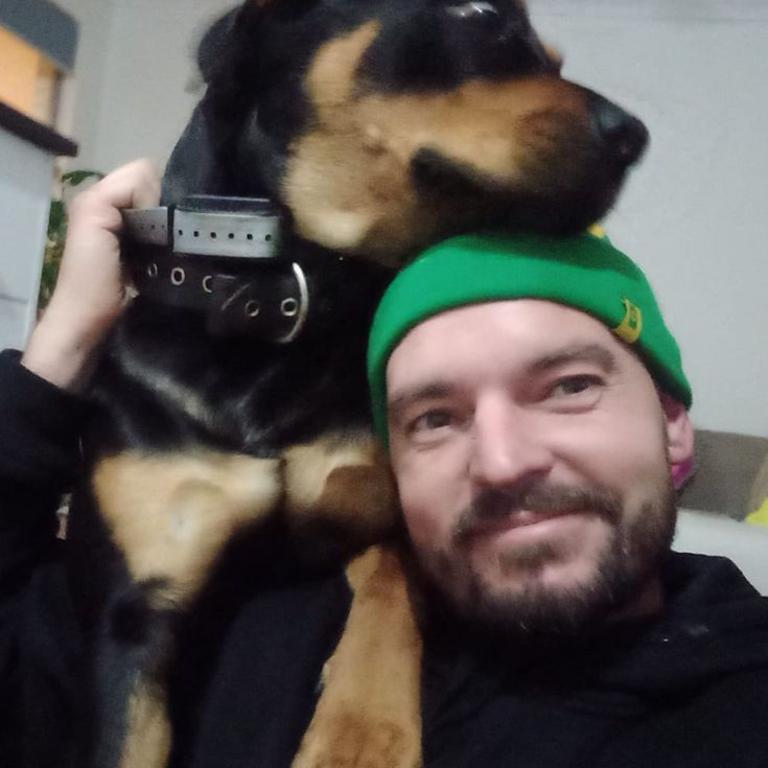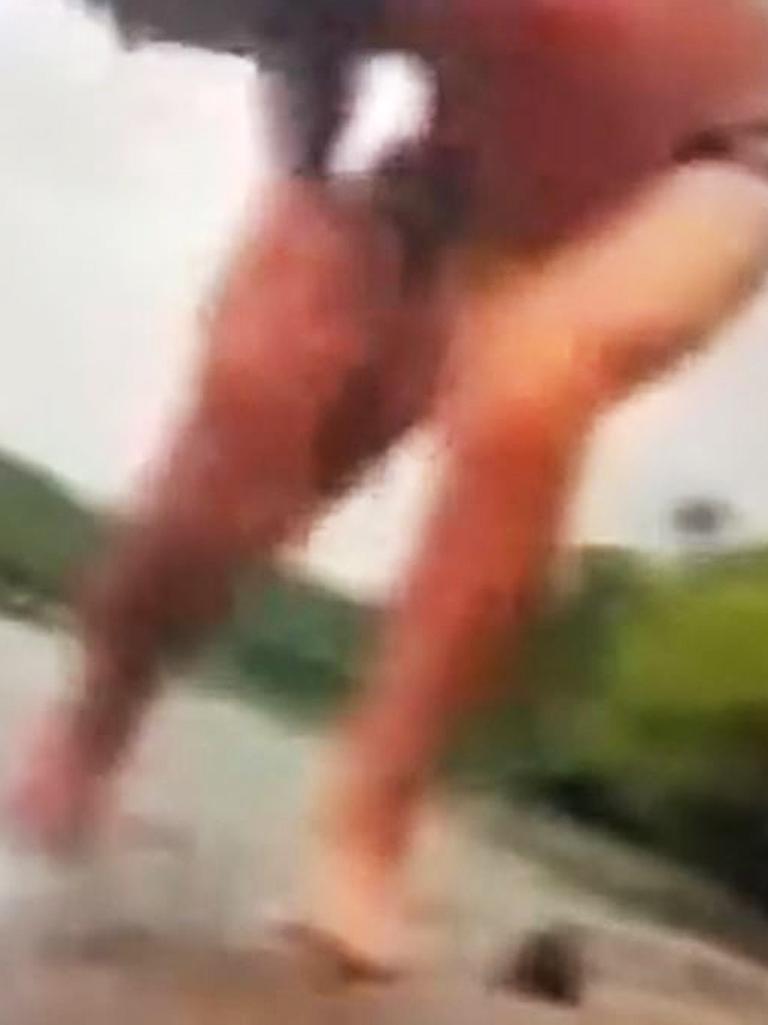Traditional owners say croc’s death ‘changed the dynamic of the entire environment‘
Traditional owners in Far North Queensland’s Bloomfield Valley are enormously proud of their Country, but they fear things may change dramatically after a recent croc attack.
First Nations community members in Far North Queensland’s Bloomfield Valley are enormously proud of their Country.
But they now fear the idyllic area, known for its waterfalls and lush rainforest, has been tarnished by a recent crocodile attack they believe was provoked and avoidable.
But Bloomfield made headlines for the wrong reasons last week when a 4.2-metre saltwater crocodile attacked a man and his dog on Wednesday.
Alister MacPhee, 37, was flown to a hospital in Cairns after the savage attack in which the reptile snatched and ate his rottweiler, Molly.
The 4.2-metre croc was later found and shot by wildlife officers from the Department of Environment and science.

Molly’s remains were found inside the animal’s stomach during a necropsy last Friday.
A growing chorus of wildlife advocates believe the deaths of Molly and the croc were entirely avoidable, and there should be penalties for the man who cost them both their lives.
Kuku Yalanji traditional owners are among thousands who want penalties issued, despite authorities so far refusing to do so.
Aunty Kathleen Walker, a spokesperson for the local Wujal Wujal community, says there’s much to learn from the incident at the Ayton Boat Ramp, which deeply saddened her people.
“He knew the danger that was there. We believe that Mr MacPhee may have seen or sighted the croc, that he decided to focus and take the video,” she said.
“We have lived in this area and grown up here. The local people make visitors welcome in our area and are advised of the danger of crocs.

“For this person to go on and do what he did. It’s sad and utter stupidity.”
Wildlife officers from Cairns carried out a spotlighting survey of the Bloomfield River the night following the attack and located the crocodile about 200 metres from where Mr MacPhee was bitten and Molly was snatched.
The beast, estimated to be at least 40 years old, was euthanised and removed from the waterway.
Aunty Kathleen feared the incident would cast the area in a bad light.
“It doesn’t paint a good picture for our area now,” she said.
“We don’t want that. We want people to come and visit our beautiful area, but also not to do silly things like that fella did.
“For us, we respect animals, our wildlife. Some of this wildlife is our totem,” she said.
Aunty Kathleen described the intricacy of Aboriginal Lore and what the crocodile’s death meant for Bama (Aboriginal people).
“Now that we have lost one crocodile that has been hunted and buried, we have one less croc in the river,” she explained.


“That has changed the dynamic of the entire environment for our people.
“This is an Aboriginal community, this is our land, and we have respect for the danger a crocodile has.
“We live with dangerous animals like crocs and snakes. But we respect every creature on this land. We don’t swim in the water.”
She told news.com.au that the others would become violent now that a prominent large croc was gone.
“Now I’m scared to go fishing, scared to go swimming, scared to take my grandchildren anywhere near the water,” she said.
She said the community was concerned the removal of the crocodile would mean an uncertain change to their environment.
“We are very connected to our environment. That will make everything change. That warning on the sign is written in plain English. Same signage that’s throughout the area. There’s no excuse.”
A raft of conservationists have echoed the calls for penalties this week, including Steve Irwin’s father, Bob Irwin.

He said there needed to be less focus on croc management, like culls, and more on “human management”.
“The most obvious point we seem to overlook in these incidents is that this is not actually a crocodile management issue at all,” he explained.
“Things will only change when the authorities start to look at this for what it really is – a human management issue.
“Because let’s be really matter of fact here – a crocodile has never once eaten anybody out of their bedroom.”
A petition calling for Mr MacPhee to be charged in relation to animal cruelty has so far garnered almost 1500 signatures.
“Why did Mr McPhee lead his dog down to the water’s edge for a drink when the water was brackish?” the petition asks.
“By holding him publicly accountable, it sets an example to other dog owners to be more responsible and cautious in crocodile country.

“In a location that is well known and heavily signposted for having saltwater crocodiles.”
She feared the incident would spark copycats of risk takers trying their luck in croc country.
“The department should fine him. Everyone in the valley here, Bama, agree. They believe he provoked the crocodile. I believe that he should be charged,” Aunty Kathleen said.
“The poor dog was taken. And the dog warned him. It was barking.
“He should be fined. That dog, Molly, she was warning him not to go near the water.
“He knows that the water was salty. She wasn’t going for a drink. We want to see the department act.
“Visitors want to listen to us, Bama. We grew up here. We know the animals. We can smell the crocodile.”
The crocodile has been buried on Country after the Department of Environment and Science concluded its investigation.
“He belongs here,” Aunty Kathleen said.

Mr MacPhee said in a statement that he had learned his lesson.
“Everyone needs to be croc-wise in croc territory,” he said.
And the calls for action have so far proven futile.
The Cairns Post reported on Friday a DES spokeswoman stated “no offence has been committed under any legislation administered by DES”.
The Department of Agriculture, Fisheries and Forestry’s body Biosecurity Queensland, which is the Queensland government’s lead agency for animal welfare, told the Cairns Post it had received no animal welfare complaints relating to the incident.
However, campaigners who have spoken with news.com.au dispute that is the case.
News.com.au is aware of letters advocating for penalties addressed to Meaghan Scanlon, Minister for the Environment and the Great Barrier Reef and Minister for Science, as well as to Mark Furner, Minister for Agricultural Industry Development and Fisheries and Minister for Rural Communities.






